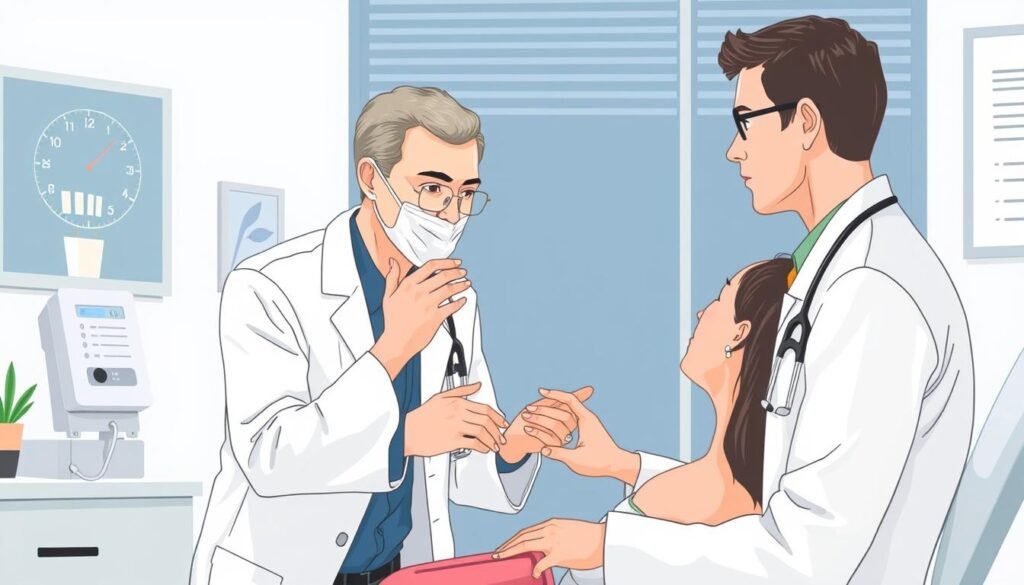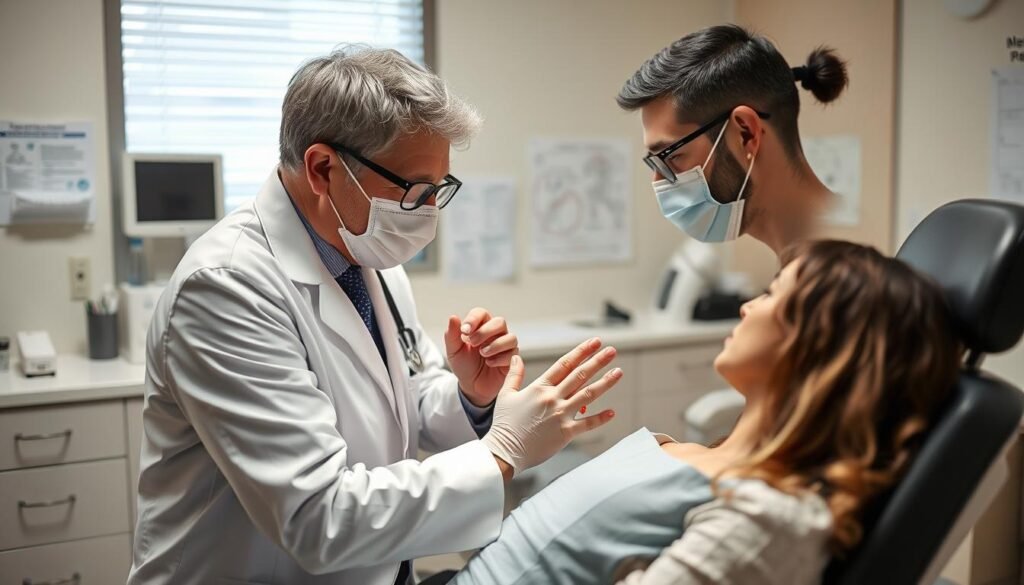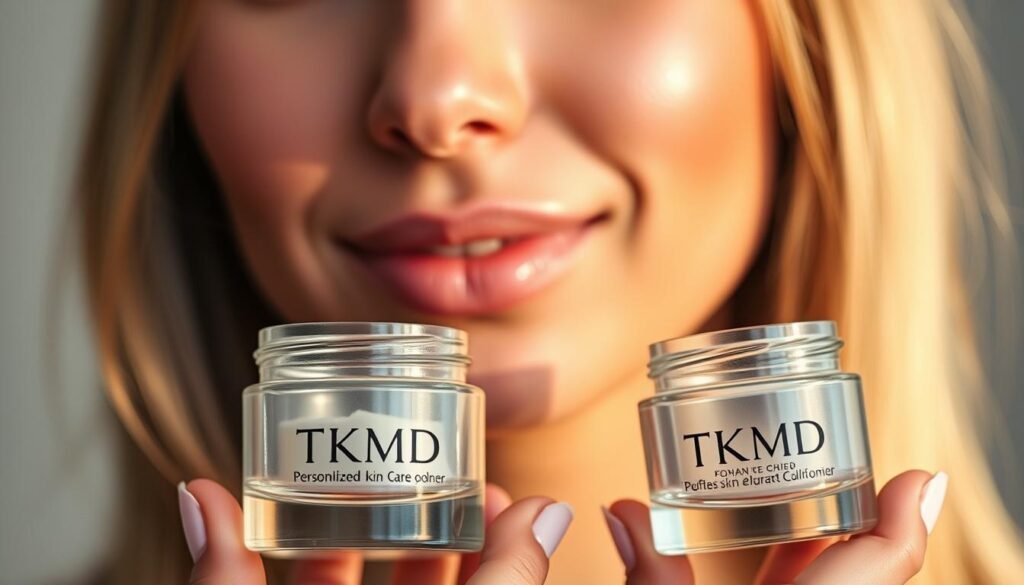Healthy skin is a reflection of overall well-being, but achieving it can be challenging without the right guidance. At Johns Creek Dermatology, we understand the importance of personalized care for various skin conditions.
Led by triple board-certified dermatologist Dr. Shereen Timani, our team is dedicated to providing expert solutions tailored to your unique skin needs. We combine cutting-edge diagnostics and innovative treatments to address your concerns effectively.
Finding a qualified dermatologist in your area is crucial for maintaining healthy skin. With a local expert, you can enjoy comprehensive care and timely interventions for any skin issues.
Key Takeaways
- Personalized treatment plans for your specific skin type and concerns.
- Comprehensive diagnostic services to accurately identify skin issues.
- Consistent care and monitoring of your skin health over time.
- Access to the latest advancements in skin care technology.
- Quicker appointments for urgent skin concerns.
Why You Need a Professional Dermatologist
A professional dermatologist is essential for addressing various skin concerns effectively. They provide expert care that goes beyond over-the-counter remedies, offering personalized treatment plans tailored to individual skin types and conditions.

Common Skin Conditions That Require Expert Care
Dermatologists treat a range of conditions, including acne, eczema, psoriasis, rosacea, and skin cancer. These conditions often require specialized treatment plans to manage symptoms and prevent complications. For more information on understanding your skin health, visit Dermatology: Understanding Your Skin Health.
Comprehensive Dermatology Services Available
Our dermatology clinic offers a comprehensive array of services for various skin concerns, ensuring you receive the best care possible.

Medical Dermatology Treatments
We provide treatments for various medical skin conditions, including acne, eczema, and psoriasis.
Cosmetic Dermatology Procedures
Enhance your appearance with our cosmetic dermatology procedures, such as Botox and fillers, available at our Columbus location.
Surgical Dermatology Options
Our surgical dermatology services include:
- Mohs micrographic surgery for precise skin cancer removal.
- Excisional surgery to remove benign and malignant skin growths.
- Skin cancer reconstruction.
- Electrodesiccation and curettage.
- Nail surgery and scar revision.
These surgical services are designed to provide effective solutions for various skin conditions, ensuring the best possible outcomes.
Finding a Dermatologist Doctor Near Me
Finding the right dermatologist near you is crucial for effective skin care. With multiple locations available, including Decatur, Buckhead/Piedmont, Johns Creek, and Monroe, you have access to expert dermatological care.
To locate a dermatologist, you can utilize online search tools and directories. These resources allow you to filter results based on location, insurance, and areas of specialization.
Online Search Tools and Directories
Online directories can simplify your search for a dermatologist. You can find lists of dermatologists in your area, along with their credentials and contact information.
- Use search engines to find dermatologists near you.
- Check online directories for dermatologists’ credentials.
- Read patient reviews to gauge the quality of care.
Insurance Considerations
Before scheduling an appointment, it’s essential to verify that your dermatologist accepts your insurance plan. Understanding your insurance coverage can help avoid unexpected costs.
| Insurance Factor | Description |
|---|---|
| In-network vs. Out-of-network | Understand the difference to minimize costs for patients. |
| Pre-authorization | Some treatments require pre-approval, which can take time to process. |
| Payment Plans | Some practices offer plans for high-deductible insurance plans. |
By considering these factors and utilizing online resources, you can find a dermatologist that meets your needs and schedule an appointment efficiently.
What to Look for in a Local Dermatologist
When searching for a dermatologist, several key factors can ensure you receive the best care for your skin. A well-qualified dermatologist can address a wide range of skin concerns, from acne to skin cancer.
To make an informed decision, consider the following essential factors:
- Expertise in specific skin conditions
- Availability of advanced treatment options
- Patient feedback and testimonials

Board Certification and Credentials
Ensure your dermatologist is board-certified, indicating they have met rigorous standards in dermatology. This certification is a mark of their expertise and commitment to staying updated with the latest in skin health.
Patient Reviews and Testimonials
Patient reviews can provide valuable insights into a dermatologist’s practice. A testimonial like, “I been coming here for over 5 years now. My acne problems were very bad and now its all gone,” highlights effective care.
Specialization in Your Specific Concerns
Some dermatologists focus on specific areas, such as pediatric dermatology or cosmetic procedures. A dermatologist with experience in your particular concern can offer more effective solutions as part of a dedicated team. For more information on finding the right dermatologist, visit our resource page.
Your First Dermatology Appointment
Scheduling your first dermatology appointment can be a crucial step in addressing your skin concerns. It’s essential to be prepared for what to expect during your visit to make the most out of your appointment and receive the best care possible from the staff.
What to Expect During Your Visit
During your first visit, the patient will typically undergo an initial consultation where the dermatologist will listen to your concerns and examine your skin condition. The dermatologist will then provide a diagnosis and recommend suitable treatment options, taking the time to explain everything in detail.

Questions to Ask Your Dermatologist
It’s helpful to come prepared with questions for your dermatologist. Some key inquiries might include understanding your diagnosis, treatment options, potential side effects, and how to modify your skin care routine. Being informed will help you make the best decisions for your skin health.
- What is my specific diagnosis and what caused this skin condition?
- What treatment options are available and which do you recommend?
- How long will it take to see improvement?
- What side effects might occur with the prescribed treatments?
The Importance of Personalized Skin Care
At the heart of effective dermatology lies a personalized approach to skin care. This tailored strategy ensures that each patient receives care that addresses their unique skin concerns and needs.
At Johns Creek Dermatology, patients are treated as part of an extended family. This approach allows for longer consultations to understand concerns fully, creating personalized treatment plans designed around each individual’s skin needs, and maintaining shorter wait times and consistent follow-ups for better care outcomes.
Customized Treatment Plans
Customized treatment plans are at the core of personalized skin care. By understanding the specific needs and concerns of each patient, dermatologists can develop targeted treatments that are more likely to succeed.
- Long-term relationships allow for tracking skin changes over years.
- Open communication about treatment preferences leads to more satisfying outcomes.
- Regular follow-ups maintain skin health and address new concerns.
Building a Relationship With Your Dermatologist
Establishing a long-term relationship with your dermatologist is crucial for effective skin care. As the patient-dermatologist relationship grows, so does the understanding of the patient’s skin and its unique patterns, leading to more effective care from the team.

Taking the Next Step for Healthier Skin
The journey to superior skin care begins with a single step: scheduling a dermatologist appointment. By doing so, you’re taking control of your skin health. Many dermatology practices offer same-week appointments for urgent skin concerns like severe acne flares.
To maximize your consultation time, prepare a list of questions and skin care goals. Bringing your current products allows the dermatologist to assess their suitability. By building a relationship with an expert dermatologist, you create a foundation for long-term skin health. Taking action now can prevent skin conditions from worsening.


